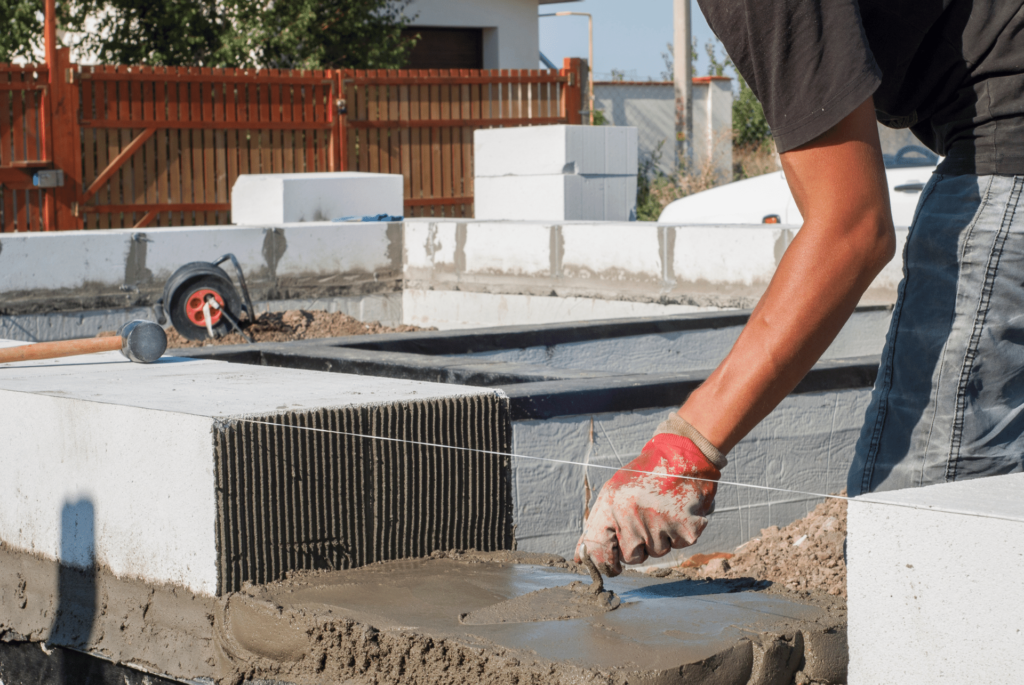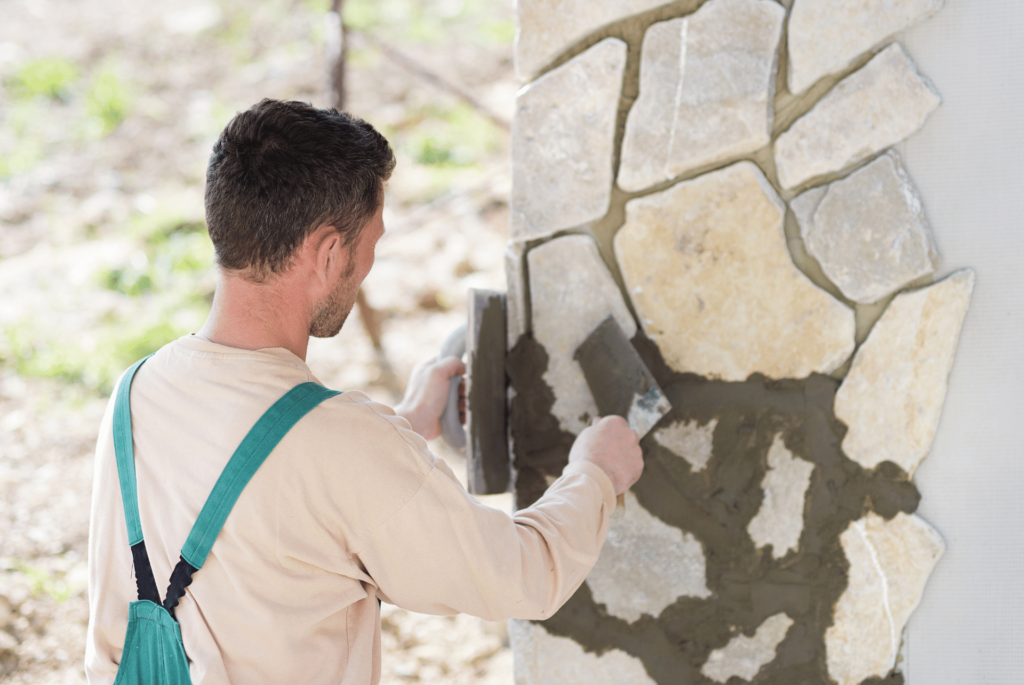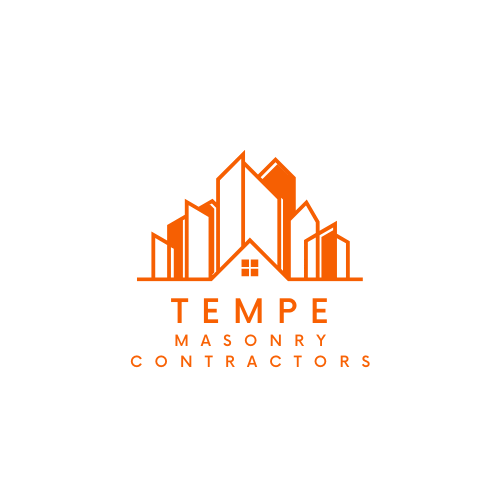Stone outdoor kitchenS
Stone outdoor kitchens have become increasingly popular in transforming outdoor spaces into functional and stylish areas for cooking, dining, and entertaining. These beautifully crafted culinary spaces not only add value to your property but also provide a unique and enjoyable experience for homeowners and guests alike.Whether you’re a professional chef or a home cook, a stone outdoor kitchens is an ideal addition to any home.
MASONRY CONTRACTOR IN TEMPE
The Sustainable Advantage of Masonry
In an era where sustainability is increasingly important, masonry stands out as a building material with inherent environmental benefits. With its long history of use and timeless appeal, masonry offers durability, energy efficiency, and a reduced environmental impact. In this article, we will explore the sustainable advantages of masonry and why it is an excellent choice for building a greener future.
Durability and Longevity: One of the primary sustainable advantages of masonry is its exceptional durability and longevity. Masonry structures can withstand the test of time, often lasting for centuries with minimal maintenance. Unlike other construction materials that require frequent replacement, masonry buildings contribute to resource conservation and waste reduction. By choosing masonry, you invest in a long-lasting solution that reduces the need for future construction, minimizing the environmental impact associated with new building materials.
Energy Efficiency: Masonry’s thermal mass properties contribute to excellent energy efficiency. Masonry walls possess the ability to store and slowly release heat, helping to regulate indoor temperatures. In colder climates, masonry walls retain heat, reducing the reliance on heating systems and energy consumption. Conversely, in warmer climates, masonry walls absorb and dissipate heat, reducing the need for excessive air conditioning. This thermal mass effect creates a more comfortable and energy-efficient indoor environment, lowering energy bills and reducing greenhouse gas emissions.
Reduced Maintenance and Life Cycle Costs: Masonry’s durability translates into reduced maintenance requirements and lower life cycle costs. Unlike other materials that may deteriorate quickly or require frequent repairs, masonry structures can withstand harsh weather conditions, resist pests, and maintain their integrity over time. The longevity and minimal maintenance needs of masonry buildings result in fewer material replacements, reduced waste generation, and lower ongoing costs for property owners. This not only benefits the environment but also provides financial savings in the long run.
Fire Resistance and Safety: Masonry is highly fire-resistant, offering an added layer of safety and protection. Masonry walls and structures provide excellent fire barriers, reducing the risk of fire spread and limiting potential damage. This fire resistance contributes to a safer built environment and helps mitigate the environmental impacts of fires. By choosing masonry, you prioritize the safety and well-being of occupants and the surrounding ecosystem.
Natural Materials and Recyclability: Masonry primarily utilizes natural materials, such as stone, brick, and concrete, which are abundant and readily available. These materials are often sourced locally, reducing transportation-related emissions and supporting regional economies. Additionally, masonry materials are highly recyclable. During construction or demolition, masonry elements can be salvaged and reused in new projects, minimizing waste and conserving resources. The recyclability of masonry contributes to a circular economy model, where materials are continually repurposed and their life cycles extended.
Thermal Insulation and Noise Reduction: Masonry structures offer excellent thermal insulation properties, reducing the reliance on heating and cooling systems. The high thermal mass of masonry walls helps regulate interior temperatures, creating a more energy-efficient and comfortable living or working environment. Additionally, masonry provides effective sound insulation, reducing noise transmission from outside sources and improving indoor acoustics. The thermal and acoustic insulation provided by masonry enhances occupant comfort, reduces energy consumption, and creates a healthier indoor environment.
Low Environmental Impact: Masonry has a relatively low environmental impact throughout its life cycle. The production of masonry materials requires less energy compared to other construction materials, resulting in lower greenhouse gas emissions. Additionally, masonry materials often contain a significant percentage of recycled content, further reducing the demand for virgin resources. The long lifespan of masonry structures reduces the need for frequent material replacements, minimizing waste generation. By choosing masonry, you contribute to a more sustainable construction industry and reduce your ecological footprint. Check out our stone outdoor kitchens now!
TEMPE MASONRY SERVICES
Plan and Execute a Successful Masonry Project
Embarking on a masonry project can be an exciting endeavor that adds beauty, functionality, and value to your property. Whether you’re considering a new brick patio, a stone fireplace, or a decorative masonry wall, proper planning and execution are essential for a successful outcome. In this article, we will guide you through the key steps to plan and execute a masonry project effectively.
Define Your Project Goals: Begin by clearly defining your project goals. What do you hope to achieve with your masonry project? Are you looking to enhance your outdoor living space, add structural elements, or improve the aesthetic appeal of your property? Understanding your objectives will help you make informed decisions throughout the planning and execution process.
Assess Your Space and Resources: Take a close look at the area where the masonry project will be implemented. Consider factors such as available space, site conditions, and existing structures. Assessing your resources, including your budget, materials, and time frame, is also crucial at this stage. Understanding these constraints will enable you to plan realistically and make informed choices.
Design and Visualization: Work with a professional mason or a design specialist to develop a comprehensive plan and visualize the final result. Share your ideas and preferences while considering the practicality and compatibility with your property’s overall aesthetics. This stage allows you to explore various design options, material choices, and layout configurations. Detailed drawings or 3D renderings can help you envision the final outcome and make necessary adjustments before moving forward.
Hire a Professional Masonry Contractor: Engaging a skilled and experienced masonry contractor is crucial to the success of your project. Look for contractors with a solid reputation, proper licensing, and a portfolio of completed projects that align with your vision. Request and verify references from past clients to ensure their satisfaction with the contractor’s work. A professional contractor will provide expert guidance, offer valuable insights, and execute the project to the highest standards.
Obtain Necessary Permits and Permissions: Depending on the scope of your masonry project and local regulations, you may need to obtain permits or permissions from the appropriate authorities. Research the requirements in your area and ensure that you comply with all necessary regulations. Working with a reputable contractor can help navigate this process, as they will be familiar with local building codes and permit procedures.
Material Selection: Selecting the right materials is crucial for the success and longevity of your masonry project. Consider factors such as durability, aesthetics, maintenance requirements, and compatibility with existing structures. Consult with your masonry contractor to identify high-quality materials that suit your project goals and budget. They can guide you in choosing the best options that meet your needs and provide the desired aesthetic appeal.
Develop a Timeline and Budget: Create a realistic timeline for your project, taking into account factors such as weather conditions, material availability, and contractor schedules. Establishing a timeline will help you stay organized and ensure that the project progresses smoothly. Additionally, develop a detailed budget that covers all aspects of the project, including materials, labor, permits, and contingencies. Having a clear budget in place will help you avoid unexpected expenses and ensure that your project stays on track.
Prepare the Site: Before construction begins, prepare the site by clearing any obstructions, leveling the ground, and addressing any necessary site improvements. It is important to have a solid and properly prepared base for your masonry project to ensure stability and longevity.
Construction and Quality Control: During the construction phase, closely monitor the progress to ensure that the project aligns with the approved design and specifications. Regular communication with your contractor is vital to address any concerns or modifications promptly. Regular inspections and quality control measures will help maintain the highest standards of workmanship and ensure the sustainability of your project. Check out our stone outdoor kitchens now!


MASONRY CONTRACTOR IN TEMPE
Why it's the Greenest Choice
Stone outdoor kitchens are more than just a stylish addition to your home, they are also a sustainable and environmentally-friendly choice. In fact, they are one of the greenest options for outdoor kitchens, and here’s why:
Natural and Abundant Materials: Masonry is primarily made from natural materials such as clay, limestone, and sand. These materials are abundant and readily available, reducing the need for resource-intensive manufacturing processes. By utilizing materials that are easily sourced from the earth, masonry minimizes the extraction of finite resources and reduces the associated carbon footprint.
Longevity and Durability: One of the key sustainability advantages of masonry is its exceptional durability. Masonry structures have a long lifespan and can withstand the test of time with minimal maintenance. Unlike other construction materials that may deteriorate quickly, masonry buildings require fewer repairs and replacements, leading to a significant reduction in waste generation. The longevity and durability of masonry contribute to a more sustainable built environment.
Energy Efficiency: Masonry offers excellent thermal properties, making it highly energy-efficient. The thermal mass of masonry walls helps regulate indoor temperatures by absorbing and slowly releasing heat. This reduces the need for artificial heating and cooling, resulting in lower energy consumption and greenhouse gas emissions. By choosing masonry, you can create buildings that are comfortable, energy-efficient, and environmentally responsible.
Fire Resistance and Safety: Masonry is known for its fire-resistant properties, providing an added layer of safety. Masonry structures can withstand high temperatures and resist the spread of fire, protecting both the occupants and the surrounding environment. This reduces the risk of fire-related disasters and contributes to a safer and more sustainable community.
Reduced Carbon Footprint: Masonry has a relatively low carbon footprint compared to other construction materials. The manufacturing processes involved in producing masonry products generate fewer greenhouse gas emissions. Additionally, the thermal mass and energy efficiency of masonry buildings reduce the reliance on heating and cooling systems, further lowering carbon emissions. By choosing masonry, you actively reduce your carbon footprint and contribute to mitigating climate change.
Low Maintenance and Life Cycle Costs: Masonry buildings have minimal maintenance requirements, resulting in lower life cycle costs. The durability of masonry structures means they are less prone to damage and deterioration, reducing the need for frequent repairs and replacements. This not only saves money but also reduces the consumption of resources and the associated environmental impact. Choosing masonry as a building material ensures long-term sustainability and financial savings.
Recyclability and Reusability: Masonry materials can be easily recycled and reused. During construction or demolition, masonry elements can be salvaged and repurposed in new projects, reducing waste and conserving resources. This promotes a circular economy model where materials are continually reused and their life cycles extended. By opting for masonry, you contribute to the reduction of landfill waste and the preservation of natural resources.
Improved Indoor Air Quality: Masonry contributes to better indoor air quality by minimizing the use of volatile organic compounds (VOCs) and other harmful substances. Masonry materials do not emit pollutants or allergens, creating a healthier living or working environment. Improved indoor air quality has a positive impact on occupant health and well-being, ensuring a sustainable and comfortable indoor space.
Aesthetics and Timelessness: Masonry offers timeless aesthetics that complement any architectural style. The beauty and visual appeal of masonry structures stand the test of time, eliminating the need for frequent renovations or updates. By choosing masonry, you create buildings that are eco friendly and sustainable.
Don't Hesitate to contact us and get the solution
At TEMPE Masonry Contractors, we understand that every client’s needs are unique, and we pride ourselves on providing customized masonry solutions to meet those needs. Our team of experts has years of experience in masonry projects and is always ready to assist you with any questions or concerns you may have. We are here to ensure that you get the solution you need for your home or business. heck out our stone outdoor kitchens now!
We like to buy stone outdoor kitchens. Regardless of the weather, we cook with our stone outdoor kitchens. Be sure to check out our stone outdoor kitchens and what they can do for you. If you find this, reach out and let me know, stone outdoor kitchens. The best price on stone outdoor kitchens is right now, call for a quote on your stone outdoor kitchens. One last word about stone outdoor kitchens; we use flagstone, curved stone, natural stone, and pavers for our wood burning stone outdoor kitchens.

